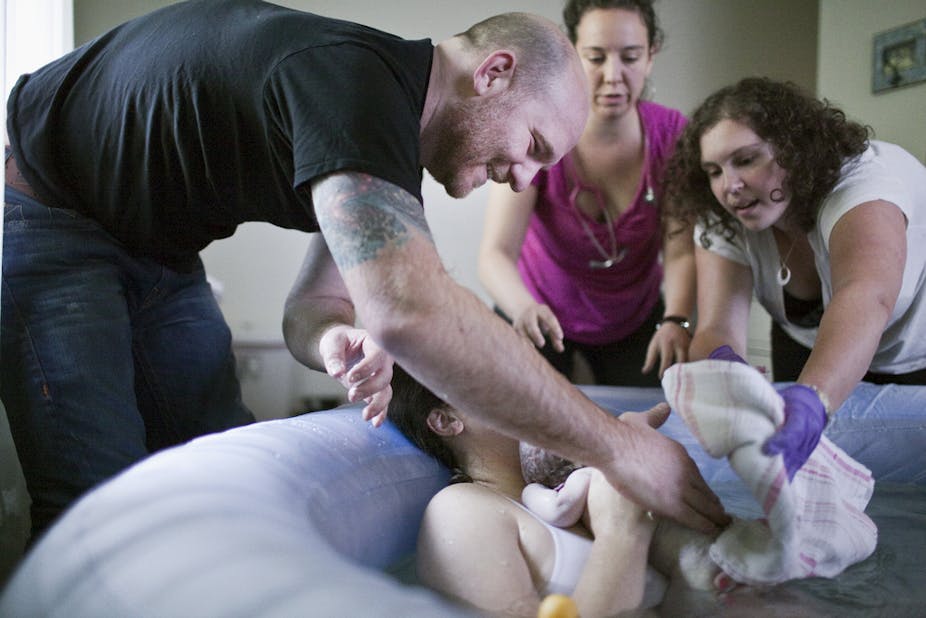Because of a supposed slight increase in the risk that the resulting child will be disabled, doubt has been cast on the morality of having a home delivery when one could have chosen to give birth in hospital.
It is akin to endangering a child by failing to fasten their safety belt while transporting them in a car, we’re led to believe. That it is unethical – even if it should not be illegal. This is what medical ethicists Lachlan de Crespigny and Julian Savulescu argue in a BMJ paper: that women have a moral obligation not to do it.
According to de Crespigny and Savulescu: “… the choice to have a home birth might only be justified if it exposes the future child to a near-zero increased risk of avoidable disability.”
And they add: “Both professionals and pregnant women have an ethical obligation to minimise risk of long-term harm to the future child.”
Their conclusion is highly debatable on two grounds. It is not clear that home deliveries are riskier than hospital ones. Even if they are riskier, it doesn’t follow that it is morally wrong for women to choose to have them.
It is perhaps a more extreme extension of the principle, but taking abortion, you could argue that it is morally good for a woman to choose to remain pregnant and offer the growing foetus the hospitality of her womb rather than opt for an abortion. But not all of us would say that she has a moral obligation to remain pregnant or ascribe moral blame.
There might also be particular risks associated with hospital deliveries. For instance, mothers and babies might be more exposed to infectious diseases there. They could also run the risk of injury or death in a road accident on their journey to and from the hospital. These risks are slight but so too are the risks of disability that Crespigny and Savalescu talk of.
It is not clear that it is irrational for a women to choose to have a baby at home rather than a hospital. It isn’t possible to avoid risk if one chooses to have a baby. And it isn’t obvious that one could possibly know that, all things considered, one choice was riskier than the other.
Despite a widely held belief that hospital is best, the extent of the different risks isn’t known – both choices involve risks of different sorts of dangers. This makes the idea of a rational comparison between them dubious.
Take the parable of the Good Samaritan. In the story, a traveller is beaten and left beside the road. He is ignored by two passers by before the Good Samaritan comes to his aid. He tends his wounds and bandages him. Then, he takes him to an inn and pays the innkeeper for his board and lodgings.
Between the heinously bad behaviour of those who savagely robbed him and the superlatively good behaviour of the Good Samaritan there is a spectrum of grades of moral badness and goodness. The middling range of nondescript or morally mediocre is quite acceptable. We are morally obliged not to attack travellers. We are not morally obliged to act as generously as the Good Samaritan did. Judith Jarvis used this example in her argumentin defence of abortion: by terminating a pregnancy, a woman doesn’t violate her moral obligations but is instead not the “Good Samaritan” who exceeds them.
It might be more in a baby’s interests, statistically, to be born in a hospital than born at home. However, it does not follow that an unborn child thereby has a moral right to be born in a hospital. And that, correspondingly, the mother has a moral duty to deliver her baby there. We are not morally obliged to be saints or superheroes. So even if we knew what was the morally superlative thing to do, we would not be morally obliged to do it, no matter how commendable such action might be.
It has not been shown by Crespigny and Savulescu that it is irrational or immoral for women to have home deliveries. The pivotal question is: whether having a home delivery will subject a child to not merely a risk but an unreasonable risk of disability.
What the Good Samaritan did was magnificent. But it was also beyond the call of duty, which is what makes it a worthy parable. He could have done less yet still acted well. Similarly, a woman might have a home delivery and act well enough.

